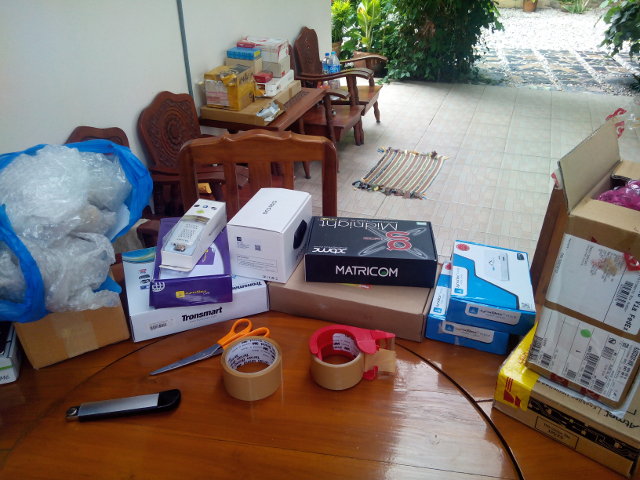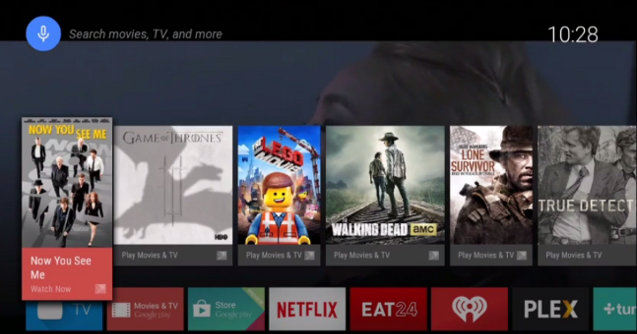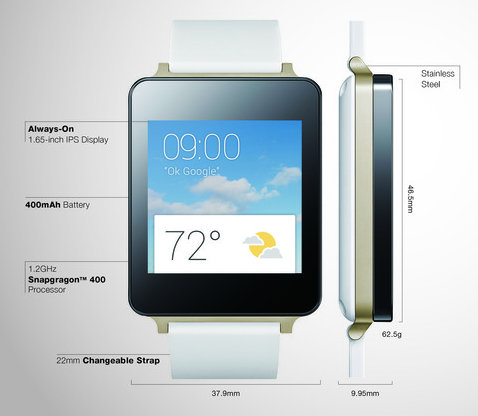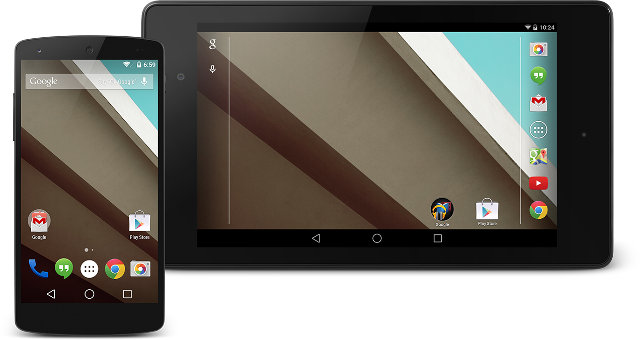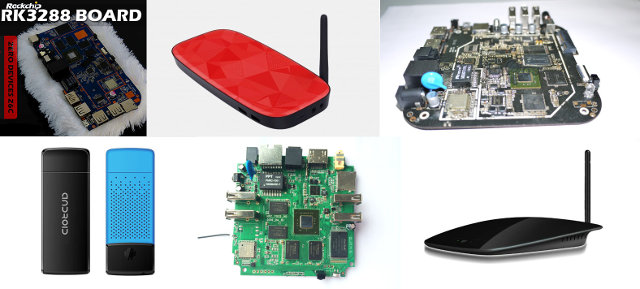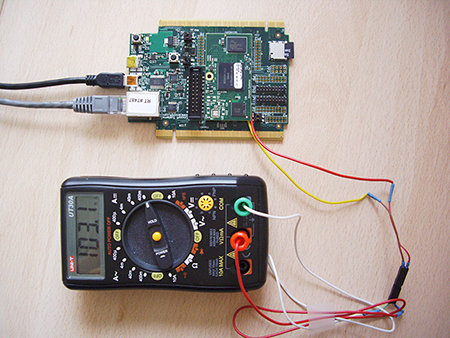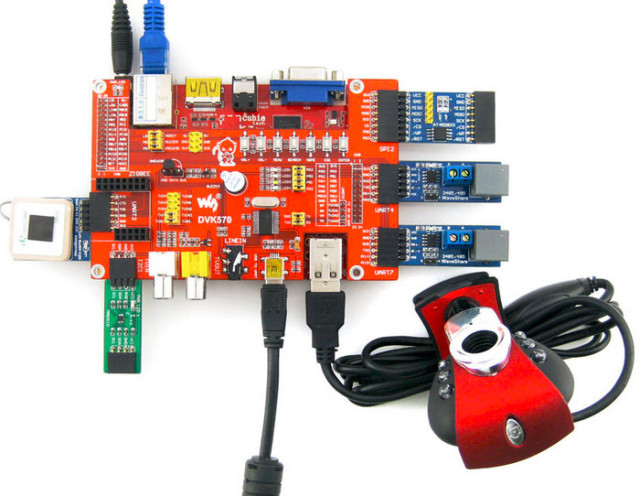Regular readers will know that I organized a giveaways last week, with Linux and Android based TV boxes and TV dongles based on Amlogic, Rockchip, and Telechips processors, a total of 8 devices with a combined value closed to $1,000 if purchased new. I’ve now selected all the winners, and send the devices, so it may be nice to list them in one post, even I announced each individual winners in the comment section of each contest. Without further delays, let’s go through the winners and their country of residence, with links to the original individual winner announcements: Jynxbox M1V2 Pure Linux Richard, USA (Facebook contest) Pavlos, Greece (Comment contest) Mele X1000 – Vedas, USA Measy U2C – Umaar, Germany Matricom Gbox Midnight MX2 – Starsolaris, Ukraine Beelink A9 – Alcides, Brazil Jynxbox Live – Greg, Canada Tronsmart Prometheus – Roberto, Portugal All parcels have been sent today by Airmail […]
Google Formally Launches Android TV. Android TV Set-Top Boxes and TVs to be Available in H2 2014
After Android L for mobile devices, and Android Wear for wearables, Google also announced Android for your television at Google I/O 2014, and after definitely killing “Google TV”, renaming it to “Google Services for Smart TV”, the company went for the obvious and called it “Android TV”, which will get messy with all the Chinese “Android TV” boxes that do not run “Android TV” but simply “Android”… Google apparently used an Android TV reference platform (ADT-1) based on Nvidia Tegra 4 K1 at I/O to showcase their latest implementation of Android the the living room. I’ve embedded the video of the demo below, but the key part of the demo can be summarized as follows: Android TV’s “TV Input Framework” can overlay notifications and other data on top of various video sources such as HDMI, TV tuners, and IP TV receivers Voice control demo (with smartphone) with requests such as: […]
Google Releases Android Wear SDK, LG G Watch and Samsung Gear Live Smartwatches Are Now Available
I’ve just covered what’s new in Android L?, and I’m going to focus on Google I/O 2014’s announcements related by Android wear starting with hardware with LG G Watch ,and Samsung Gear smartwatches, followed by some details about the first official release of Android Wear SDK. LG G Watch Specifications: SoC – Qualcomm Snapdragon 400 @ 1.2 GHz System Memory – 512MB RAM Storage – 4GB eMMC Display – 1.65” IPS display (280 x 280) Connectivity – Bluetooth 4.0 LE Sensors – 9-Axis (Gyro / Accelerometer / Compass) IP Rating – IP67 dust and water resistant Battery – Li-ion 400mAh Dimensions – 37.9 x 46.5 x 9.95 mm Weight – 62.5 grams LG G watch will run Android Wear (as it’s the subject of this post), and it currently available on Google Play for $229 (US only?) with shipping scheduled for early July. Samsung Gear Live Specifications: Processor – Unnamed […]
Google Releases Android L (Lollipop?) Developer Preview
Google I/O is taking place right now in San Francisco, and the company made several announcements. Although they have not announced the full codename of Android 5.0, referring to the next version as “Android L” (Lollipop would be nice though), but they’ve already documented the key changes made to Android L, and a developer preview will be released later today (26 June), together with binary images for Google Nexus 5 and Nexus 7. Beside the smartphone and tablet developer preview, there will be 3 other SDKs for Android L: Android Wear SDK – Android for wearables with sync notifications, wearable apps, data transfer APIs, and voice actions, e.g. “Ok Google, call mum”. Android TV Preview SDK – Android for TVs with pre-built fragments for browsing and interacting with media catalogs, in-app search, and recommendations. Android Auto SDK – Android for the car with apps featuring consistent user experience between vehicles, […]
List of Rockchip RK3288 Android TV Boxes So Far
In the previous years, you’d normally learn about new devices as they get listed on Alibaba or Aliexpress, and that’s how I built my – now very incomplete – list of Rockchip RK3188 based devices. But now companies seem to be anxious to let people know about their new devices even before they hit the market, and albeit I’ve been told full production of Rokchip RK3288 powered Android TV boxes is only planned by the end of July, many companies are already showing off their new devices, even though only the PCBA may be ready, or in development. Let’s go through the list of Rockchip RK3288 quad core Cortex A17 media devices that’s known (to me) so far: No brand D368 – HDMI 1.4 TV dongle with 1 or 2 GB RAM, 4, 8 or 16 GB flash, Wi-Fi 802.11 b/g/n/ac + (optional) Bluetooth, and 2x USB host ports. No […]
Low Power Mode (Suspend to RAM) in uCLinux for Freescale Kinetis K70 MCU
All ARM based micro-controllers and processors implement multiple power mode in order to save optimize power usage depending on the tasks. However, I’ve been told by some hobbyists/developers/makers that low power modes are not always implemented in Linux, especially for low cost systems either because of hardware limitations or the software is not implemented. EmCraft Systems has just released their latest embedded (uC-) Linux distributions for the MCU boards, and one of the features now available is “suspend to RAM” for their K70 SoM development kit, based on Freescale Kinetis K70 Cortex M4 MCU, which consume just around 600 to 700 uA @ 3.3V (2 to 2.3 mW) in this low power mode. They have connected a multimeter to measure the current drawn at different power modes. If you want to know all the details, you should probably read the company’s article on “Linux Low-Power Mode on Kinetis“, but I’ll […]
MK918 Android TV Box Powered by Rockchip RK3188T Sells for $50
MK918, also known as K-R42-1, CS918, or MK888, is an Android TV box powered by Rockchip RK3188T with 2GB RAM, and 8GB Flash. This is a pretty standard device, and I already featured it, but GeekBuying is selling the device for $49.99 as part of their second anniversary, which looks to be good deal, but it turns out some Aliexpress sellers are also doing promotions for about the same price ($50+). The promotion on GeekBuying will last about on more day, and around 50 units are available, and on Aliexpress promotions runs between 1 and 3 more days. The usual price seems to be between $60 and $70, but I guess some companies may get rid off old stocks with products based on Amlogic S802 already there, and Rockchip RK3288 and AllWinner A80 products soon to hit the market. Let’s remind ourselves of the complete specs: SoC – Rockchip RK3188T […]
CubieTruck’s DVK570 Daughter Board and Add-ons (GPS, Zigbee, Sensors, RS485, and SPI Flash)
CubieTruck is one of the development boards made by CubieTech. It is powered by AllWinner A20 with 2GB RAM, Gb Eternet, various ports, and supports Android and multiple Linux distributions. Waveshare Electronics has just launched DVK570 daughter board for the CubieTruck which adds support for TV in and out, a buzzer, and headers to connect modules such as GPS, RS485, an SPI flash, a Zigbee module, a magnetometer, or a temperature sensor. Hardware features of DVK570 daughter board: CubieTruck Headers – 1x 30-pin header and 1x 24-pin header for connection with the CubieTruck Video – TVIN in, and TV Out interfaces (CVBS) Audio – 3.5mm Line IN interface Debugging – UART interface, micro USB port with USB to UART chip (Profilic PL2303) Expansions for add-on modules: 1x 4-pin I2C interface to connect I2C modules such as PCF8563 RTC Module, MAG3110 Board, and more 2x 6-pin UART interfaces (UART4 and 7) […]


